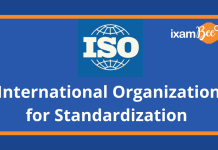What is BCBS?
BCBS stands for Basel Committee on Banking Supervision. The committee was established by the central bank governors of 10 countries. The ten countries are referred to as the Group of Ten which is the name given to the group of ten countries that made an agreement to show participation in the General Arrangements Borrow (GAB) which pertained to providing additional funds to IMF -International Monetary Fund to support it in increasing its lending capacity. The BCBS was established in the year 1974 in Basel, Switzerland. It’s Secretariat is located at the Bank for International Settlements (BIS). The Basel Committee was formed after there was trouble in International currency and markets. It was originally named as ‘The Committee on Banking Regulations and Supervisory Practices’. The main intention behind the establishment of this committee was providing a common platform to promote cooperation on matters related to banking supervision among all the participating countries. The Basel Committee releases a set of norms/accord known as Basel norms or Basel Accord.
Framework of BCBS
The Basel Committee on Banking Supervision (BCBS) is assisted by some other organizations which help in achieving its motives. The Basel committee works along with its sister organizations: International Organization of Securities Commissions and the International Association of Insurance Supervisors and make a Joint Forum of International Financial Regulators.
The current Chairman of the committee is Stefan Ingves who is the governor of the Central Bank of Sweden. The Secretary General of BCBS is William Cohen.
Goals of BCBS
As the title suggests, Basel Committee on Banking Supervision was formed with the intention of promoting and supporting coordination and cooperation among all the participating nations in the direction of sorting out the banking supervision matters.
- It’s main aim is to formulate certain guidelines and set standards in various areas that would assist in improving the quality of banking supervision.
- One of the main objectives of Basel Committee lies in promoting financial stability.
- BCBS ensures that none of the banking organization escapes supervision.
- Basel Committee also ensures that the banking organizations have enough financial aid to overcome all the unpredictable losses and meet their requirements.
- The BCBS formulates standards on bank capital, funding and liquidity, that are to be agreed upon by the member countries. Though these regulations or standards are not compulsory for all the participating organizations to follow.
BCBS Members
- As of now, the Basel Committee comprises of 45 members from 28 jurisdictions that consist of central banks and authorities that are entrusted with the responsibility of supervision of banking activities. These include: Argentina, Australia, Belgium, Brazil, Canada, China, France, Germany, Hong Kong, India, Indonesia, Italy, Japan, Korea, Luxembourg, Mexico, the Netherlands, Russia, Saudi Arabia, Singapore, South Africa, Spain, Sweden, Switzerland, Turkey, the United Kingdom and the United States.
- The committee also consists of 9 observers that consist of central banks, supervisory groups, International organizations and others.
BCBS Areas of Work
The BCBS is entrusted with some major responsibilities related to the supervision of banking organizations and to maintain the financial stability and ensuring the implementation of the measures suggested in the direction of improving the banking supervision. BCBS works at four levels through four groups:
- The Standards Implementation Group: It works towards ensuring the implementation of basic standards and guidelines suggested by the Basel committee.
- The Policy Development Group: It is responsible for overseeing the emerging issues related to supervision and also working towards formulating policies for betterment of banking systems and standards of supervision.
- The Accounting Tasking Force: This group ensures the safety of the banking system through high-quality standards set up for audits and accounting.
- The Basel Consultative Group: This group is responsible for maintaining better coordination among banking supervisors.which also includes promoting smooth and fair dialogue with non-member countries.
Basel Norms/Basel Accord
The set of regulations and standards that are formulated and agreed upon by a group of central banks participating in the BCBS mission to achieve financial stability are called as Basel Accord or Basel Norms. The purpose of these norms is to ensure that the banking organizations of the participating nations are completely equipped from a financial point of view to handle any sudden losses and that they are able to meet all the expected requirements.
- The first set of norms was released in 1988 which was called Basel I that introduced capital measurement system and thus this was also called Basel Capital Accord. This accord entirely concentrated on ‘credit risk’ and released a set of minimum capital requirements for the banks.
- The second set of standards and regulations was released in 2004 known as Basel II with the intention of replacing Basel I. Basel II norms were based on three main pillars: (I) Minimum Capital Requirements (II) Supervisory Review (III) Market Discipline.
- The third set of regulations were called Basel III which was agreed upon by the BCBS members in November 2010. It came in response to the financial crisis of 2007-08 which exposed some shortcomings in the previous financial regulations.It focuses on boosting the minimum capital requirements of the banks through an increase in the liquidity of the banks and decreasing the banks’ leverage.
- Some changes were further introduced in the Basel III norms in 2016-17 which will be called as Basel IV which is opposed by many. It is being anticipated that there are going to be more stern regulations may be introduced under Basel IV which will be implemented later.
India has also accepted these Basel norms and is bound to follow all the rules and regulations that come along the way. Recently the deadline for implementation of Basel III norms was being extended and for now the date has been extended till 2022. Though,when India adopts these norms, it may prove a tough task. For this, Indian banks will have to raise a whopping amount of 600000 crores in the next nine years. Hopefully it may bring a good change in the Indian Banking system later on.
Also Read:
& Many More..
Get Free Online Test Series, Daily GK Update, PIB Current Affairs, Banking Awareness as well as latest updates for Bank PO, Bank Clerk, SSC, RBI, NABARD and Other Government Jobs.
займ ухтазайм безработным на кивионлайн займ без кредитной истории














